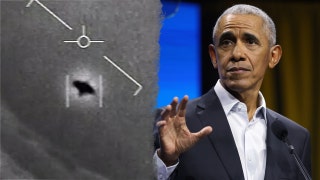Media top headlines August 12
In media news today, female viewers turn off 'Cuomo Prime Time' in droves, MSNBC's Joy Reid says DeSantis and Republicans are 'killing children' with COVID polices, and Brian Stelter gets roasted by critics after his interview with Stephen Colbert
Washington Post fact checker Glenn Kessler published a piece attacking Republicans on Thursday for criticizing a CDC study, despite acknowledging flaws in the CDC study.
Kessler promoted his fact check titled, "The GOP’s attack on the CDC’s mask reversal and a study from India." The study in question was used as the source behind the Centers for Disease Control and Prevention’s revising of its mask recommendations on July 27.
The CDC originally claimed that vaccinated people do not need to wear masks indoors in May, but the latest recommendations urged all people vaccinated or not to resume wearing masks for fear of breakthrough infections.
Kessler remarked that "Republicans have cried foul" regarding the new recommendations citing statements made by Rep. Elise Stefanik, R-N.Y., House Minority Leader Kevin McCarthy, R-Calif., and Rep. Dan Crenshaw, R-Texas. Many criticisms targeted the study used by the CDC because it was not peer-reviewed and centered on a specific vaccine developed in India rather than the United States.
"Think about what the CDC did just this week. They forced vaccinated Americans to wear a mask because of a study in India about a vaccine that’s not even in America that has not been peer-reviewed," McCarthy said.
CRITICS ERUPT AFTER CDC’S WALENSKY REFERS TO ‘PREGNANT PEOPLE’ IN VACCINE TWEET
Kessler focused criticism on Republicans’ assertion that the CDC study was not peer-reviewed. Although he acknowledged that the Science Council did define peer review as a significant feature in a study, he seemingly undermined the need for one during a pandemic.
"But in a fast-moving pandemic, experts say, public health officials do not always have the luxury of waiting until formal peer review is completed. Lives are at stake and waiting even weeks might mean many more people will die," Kessler wrote.
Despite this, his article ultimately agreed with the Republicans’ statements. Monica Gandhi, professor of medicine and associate division chief for HIV, infectious diseases and global medicine, also criticized the original study.
"If the CDC is using this reason to put back masks, they don’t have enough evidence to do so (e.g. that vaccinated are as likely to spread as unvaccinated)," Gandhi wrote.
While the India study found that up to fifty percent of vaccinated healthcare workers developed breakthrough infections, it was the only study to include such findings.
Further investigation found that the study was indeed rejected by peer review after a reviewer "was not happy with certain aspects." The director of the study, Ravindra Guptra, explained that the paper is now on its fourth revision, after the CDC publicized only the first. However, Guptra also insisted that the mask revision was a good call.
"Questioning the reversal was correct," he said. "But the CDC’s guidance was spot on."
Kessler still chose to leave the Republicans’ statements as "unrated" claiming "this issue involves a mix of opinion and legitimate disputes about scientific research." He also continued to suggest it’s only "a matter of opinion" whether a peer review is required in informing policy.
"To some extent, it’s a matter of opinion about whether scientific studies that have not yet been approved for publication should inform policymaking. The CDC presumably reviews the data and makes its own assessment, just like any peer reviewer. But the agency invites pointed questions when it unveils a new policy without disclosing rock-solid data to support it," Kessler wrote.
CLICK HERE TO GET THE FOX NEWS APP
The CDC also cited a study from Massachusetts as a source behind its recommendation. The paper claimed three-quarters all of those infected with COVID-19 were vaccinated, but this study has also faced criticism upon closer examination. In addition, the study noted that out of 469 infected people, only 4 required hospitalization with no deaths.
The Washington Post also received criticism for its "completely irresponsible" reporting on the study.









































